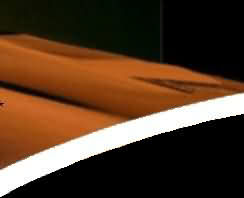





International Symposium on
Drylands Ecology and Human Security


© 2006 NDRD Imprint Disclaimer

|
Management of Dryland Sustainable Agriculture - Ahmad Reza Ommani1, Mohammad Chizari2, Azadeh N. Noorivandi3 1Presenting Author: Department of Agriculture, Islamic Azad University-Shoushtar Branch, Iran 2Department of Agricultural Extension and Education, College of Agriculture, Tarbiat Modaress University, Tehran, Iran 3 Department of Agriculture, Agricultural and Natural Resources, Ramin University, Ahwaz, Iran Abstract This study was conducted in the Ahwaz Township of Iran, which was selected purposively on the basis of having maximum area under dry land agriculture. The main objective of this research was to investigate the management of dry land and sustainable agriculture practices of wheat farmers in Ahwaz Township of Iran. The research design was a correlative-descriptive method. Farmers in Ahwaz Township who cultivated wheat were the target population for this study. A random sample of wheat farmers were selected from this Township (N =1370, n=110). The concept of sustainable agriculture involves the evolution of a new type of agriculture rich in technology and information, with much less than intensive energy use and market purchased inputs. Thus, sustainability is the successful management of resources to satisfy the challenging human needs, while maintaining or enhancing the quality of environment and conserving natural resources. Farmers all over the world are working as managers of their farm; the farmers manage the production system to get returns from it. Effective management agriculture extension has special relevance in Iranian farming where agriculture plays a key role in meeting food requirement and supporting raw materials. Effective management is crucial for obtaining high returns from a production system on sustained basis. Therefore, it is essential that the farmers and extension personnel are made aware of the local resources for developing the managerial ability of the farmers to make them move from traditional methods to cope with new demands, new problems and new challenges. A schedule was developed and data were collected at farmer’s fields. For the measurement of perception of the respondents about economic aspects of sustainability, the dry land technology was divided into nine broad components, which included land preparation, crop diversification, soil fertility, weed control, integrated pest management, using legume plants, soil and water conservation, agro-forestry, and low input sustainable agriculture. Then these broad components were sub-divided into specific technological components. The study revealed that majority of the farmers perceived minimum tillage, crop diversification, soil fertilization application, integrated nutrient management, weed control, integrated pest management, moisture and water conservation practices, and agro-forestry and for sustainable dry land agriculture as pretty important. Therefore, it is essential that the farmers are made aware of the components for sustainable dry land agriculture by extension programs. As revealed the level of education, technical knowledge regarding sustainable agriculture, income, social participation, social status, participation in extension and agricultural courses and rate of used communication channels may well explain for 76.5% changes (R2=.765) in knowledge about sustainable dry land agriculture.
|